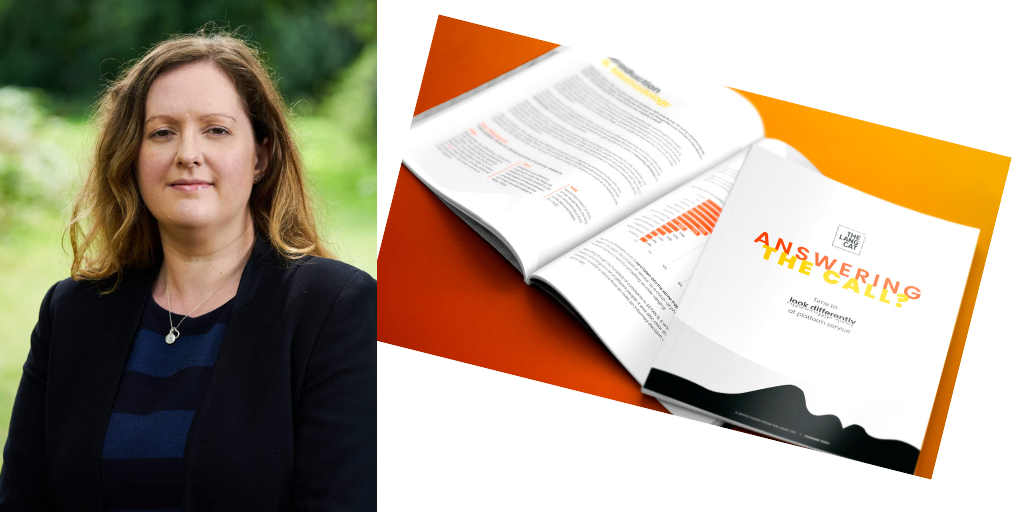Continuing our mini-series on what service really means, next up we hear from Siân Davies Cole from Plan Works.
(If you missed the lang cat take on how to get to better platform service, catch up here)
Siân discusses the paraplanner perspective on service, and the difficulty with getting to the truth.
What service means to me
For me, the number one thing about service is to do what you say you’re going to do.
If a provider is promising that it will do something, then it should actually do it. What we see quite a lot in our profession is providers talking a good game, but when you talk to users then the experience doesn’t match up. That’s the fundamental issue.
Another aspect of service is dealing with errors. How often is a particular error happening? How much accountability is there for those errors, and addressing them? You want to have confidence that the same issues aren’t going to continually happen again and again.
And then there’s also a sense of whether of provider is thinking about the end client, and coming to a good resolution. That’s what really good service is. It doesn’t make you forget the bad issue you might have had, but it makes you remember that this provider will sort out any issues, and you can carry on using them comfortably.
People and tech
The people side of service is also clearly important. There’s a stark difference between the times when you’ve got a business development manager or someone you can trust and when you haven’t.
Answering the Call looks at platform service specifically, but service goes beyond that too. That might mean providers who offer more complex products such as trusts, venture capital trusts and enterprise investment schemes. In that context, people are important because they have to know what they are talking about.
The challenge is the people might be great and helpful, but that’s covering up the fact that the tech isn’t all that great, or that a certain provider is operating with antiquated processes.
Understanding the reality
It’s really hard to know the truth with this stuff.
I had an experience recently where we said something about a particular platform, and someone else came in and said: “But did you know they do this and they do that?”
Is that true? Or could it be that’s how they used to do something, and this is just simply a case of someone bad mouthing someone else? You never really know the truth, and so many people will say so many things.
For example, it may be the case that five years ago pension transfers were bad on one platform. But it’s since sorted that out, employed lots of good people and introduced lots of good tech that’s solved the issue. But you wouldn’t necessarily know that from talking to people who aren’t up to speed.
Consumer Duty is now very nearly upon us, and that raises questions about how the rules might change platform due diligence in the context of service.
Having access to the same data points for providers across the board would be really useful, so that you can easily compare information. I don’t think any of us have got a handle on how to do that really well.
Consumer Duty means providers are going to have to be much better at communicating how they provide their service. That will lead to hopefully things like service level agreements (SLAs) being a bit more transparent.
I’m a paraplanner, so I love data. Give me all the data. But is that data available right now? I would say not really, and not on a like-for-like basis. We need like-for-like numbers that we can compare across the market so that we can make informed decisions.
Even then, those numbers need to be put into context.
I’m happy for a provider to quote an SLA of five to 10 days, as long as I also have the real life data behind that. So: “Five to days is our standard SLA, and we normally respond within that time.” Then I would know what to expect. As with things like complaints data, that’s something I’ve struggled to get out of any provider consistently.
There will always be the high-level numbers providers have to give out. But it’s the real life data that we want – the data that actually tells you something.
Siân Davies Cole is a chartered paraplanner and director at Plan Works
This is an excerpt from our recent webinar on what service really means. Watch back the full discussion here.
—
Answering the Call is the first in a series of projects we’re carrying out at the lang cat this year to really understand service, and to work up a framework for how to assess and measure it better.
Watch this space for our next adviser survey, landing in your inbox shortly, which will look to progress these initial findings. If you’ve got views on how we can help you measure service more effectively, we’d love to hear them.





